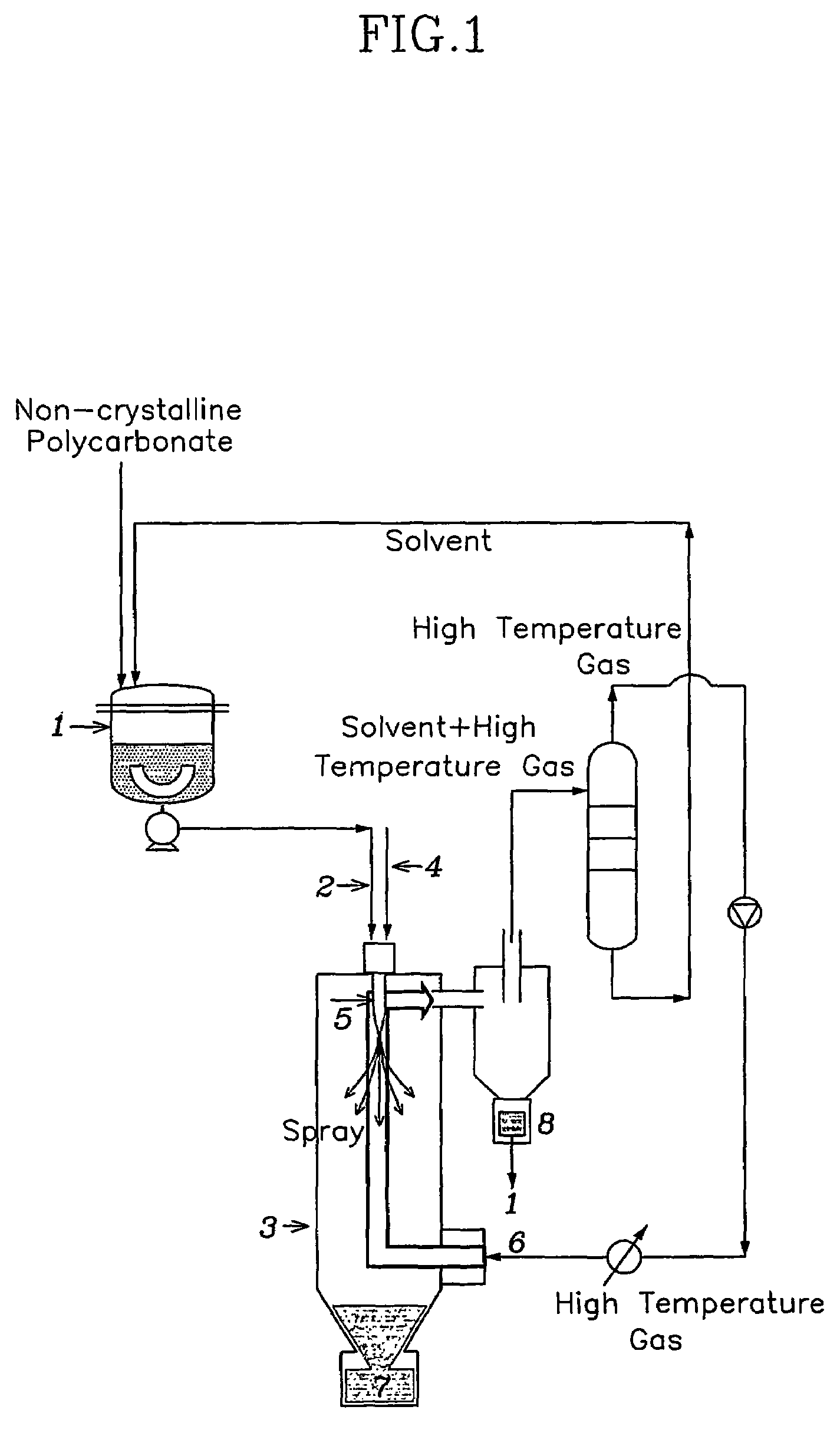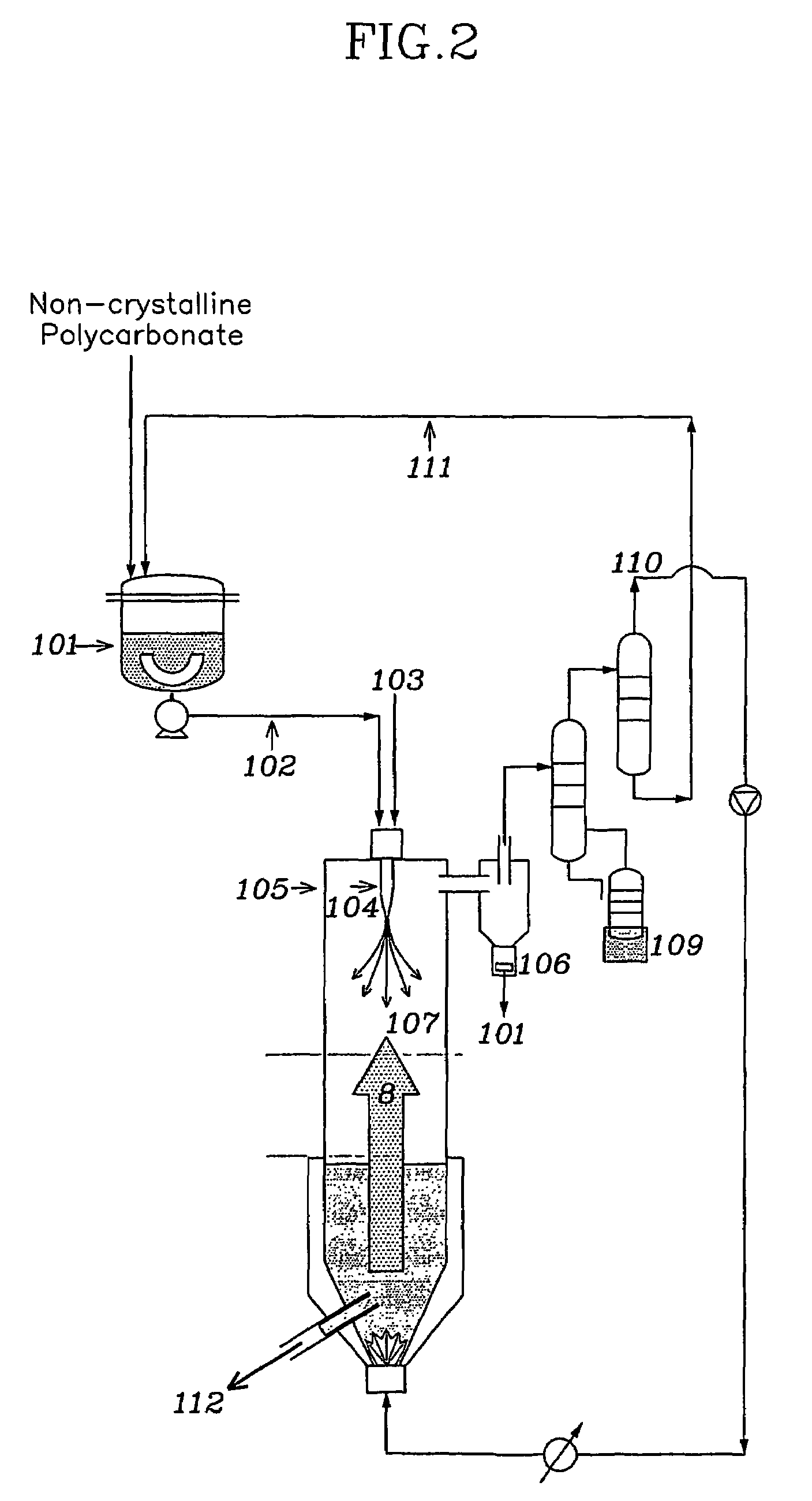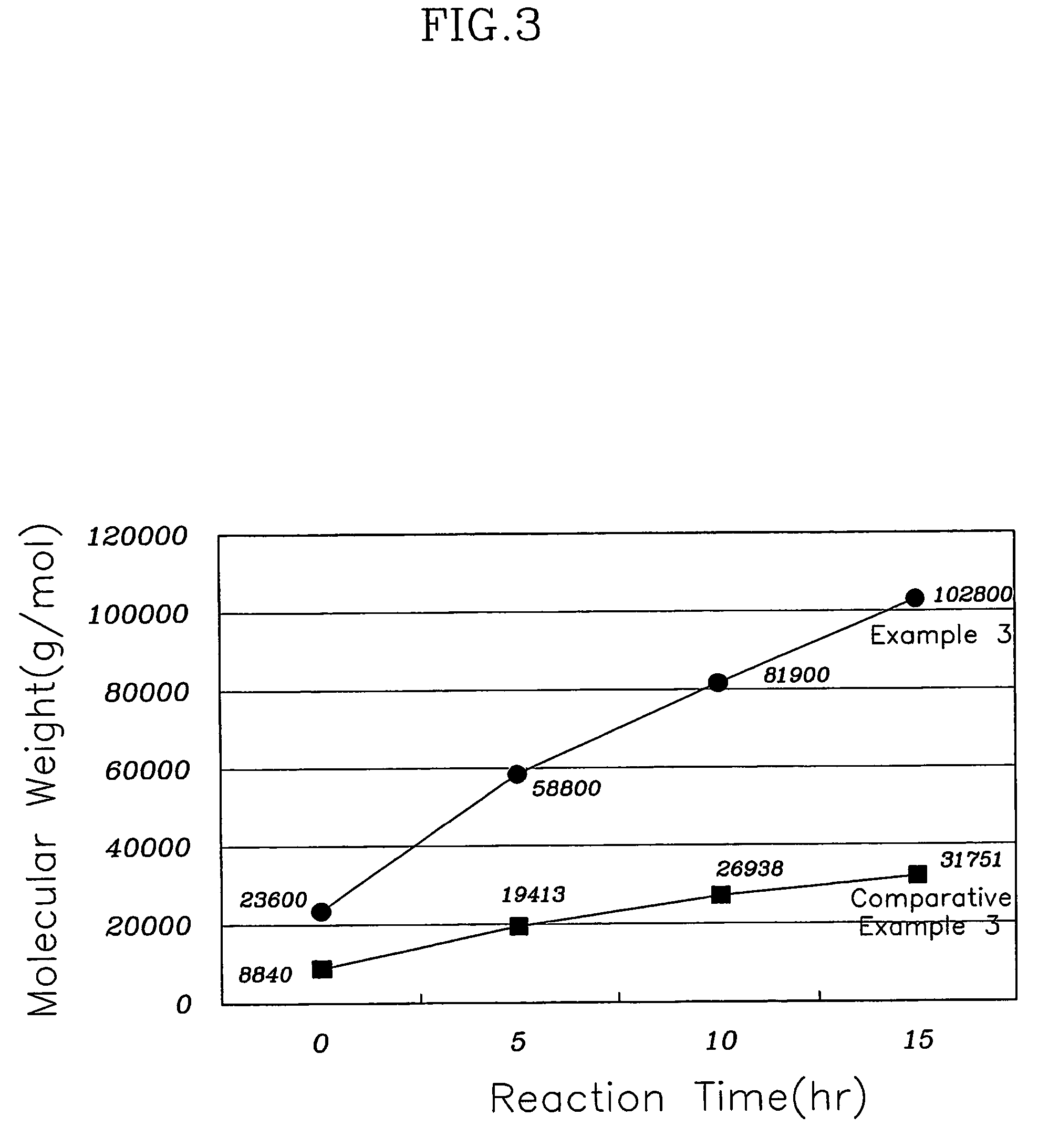Preparation method of high molecular weight polycarbonate resin
a polycarbonate resin and molecular weight technology, applied in chemical/physical/physical-chemical processes, chemical apparatus and processes, chemical/physical processes, etc., can solve the problems of high risk, high facility cost, and low degree of crystallization, and achieve low cost, uniform physical properties, and short time
- Summary
- Abstract
- Description
- Claims
- Application Information
AI Technical Summary
Benefits of technology
Problems solved by technology
Method used
Image
Examples
example 1
Preparation of Crystalline Polycarbonate
[0140]After a non-crystalline polycarbonate having a weight average molecular weight of 8,840 g / mol (Poly Dispersity Index, PDI=1.84) prepared by an ester-exchange reaction of bisphenol A and diphenylcarbonate was dissolved in a 2 l dissolution bath using chloroform as a solvent to prepare a solution of 20 wt.%, the prepared solution was sprayed into the top of a drying chamber while high temperature nitrogen at 120° C. was injected therein at a flow rate of 300 l / hour via a nozzle at the lower portion of the drying chamber, as shown in FIG. 1, to evaporate all solvent and to thereby yield a crystalline polycarbonate in the form of dried particles from the lower portion of the drying chamber.
[0141]Both evaporated solvent and high temperature nitrogen in the above procedure passed through the cyclon adhered to the side of the upper portion and were separated into liquid-state solvent and gaseous-state nitrogen via a condenser, and then the solv...
example 2
Preparation of Crystalline Polycarbonate
[0143]A crystalline polycarbonate was prepared using the same method as used in Example 1 except that a non-crystalline polycarbonate used in the crystallization was prepared through ester-exchange reaction and condensation reaction, and the molecular weight was 24,000 g / mol (poly dispersity index, PDI=1.92) and the flow rate of nitrogen to be input from the nozzle was 400 l / hour.
[0144]As a result, the average diameter of the produced crystalline polycarbonate particles was 350±31 μm, and the particle size was uniform so that a separate pulverization for solid state polymerization was not required. Also, as a result of determination using a differential scanning calorimeter, the degree of crystallization was 37.5% and the melting point was 225.74° C.
Preparation of High Molecular Weight Crystalline Polycarbonate Resin
[0145]A high molecular weight polycarbonate resin whose weight average molecular weight was 101,751 g / mol and poly dispersity ind...
example 3
Melt Polycondensation Process—Preparation of Non-crystalline Polycarbonate
[0157]After diphenylcarbonate and bisphenol A were mixed in a molar ratio of 1.05:1 and injected into a reactor under a nitrogen atmosphere, they were reacted while stirring with a jacket temperature of 230° C. for 5 min. Then, after an ester-exchange reaction of the reactants under a reduced pressure of 2 mmHg for 30 min., they were transferred into a rotating disc reactor, where the condensation polymerization reaction of the polycarbonate was carried out for 80 min. while continuously injecting nitrogen gas therein, to thereby prepare a middle molecular weight non-crystalline polycarbonate having a weight average molecular weight of 23,600 g / mol.
Intensive Solid State Polymerization Process—Preparation of High Molecular Weight Polycarbonate
[0158]After the non-crystalline polycarbonate prepared by the above melt polycondensation whose weight average molecular weight was 23,600 g / mol (poly dispersity index, PD...
PUM
| Property | Measurement | Unit |
|---|---|---|
| diameter | aaaaa | aaaaa |
| temperature | aaaaa | aaaaa |
| dispersity index | aaaaa | aaaaa |
Abstract
Description
Claims
Application Information
 Login to View More
Login to View More - R&D
- Intellectual Property
- Life Sciences
- Materials
- Tech Scout
- Unparalleled Data Quality
- Higher Quality Content
- 60% Fewer Hallucinations
Browse by: Latest US Patents, China's latest patents, Technical Efficacy Thesaurus, Application Domain, Technology Topic, Popular Technical Reports.
© 2025 PatSnap. All rights reserved.Legal|Privacy policy|Modern Slavery Act Transparency Statement|Sitemap|About US| Contact US: help@patsnap.com



